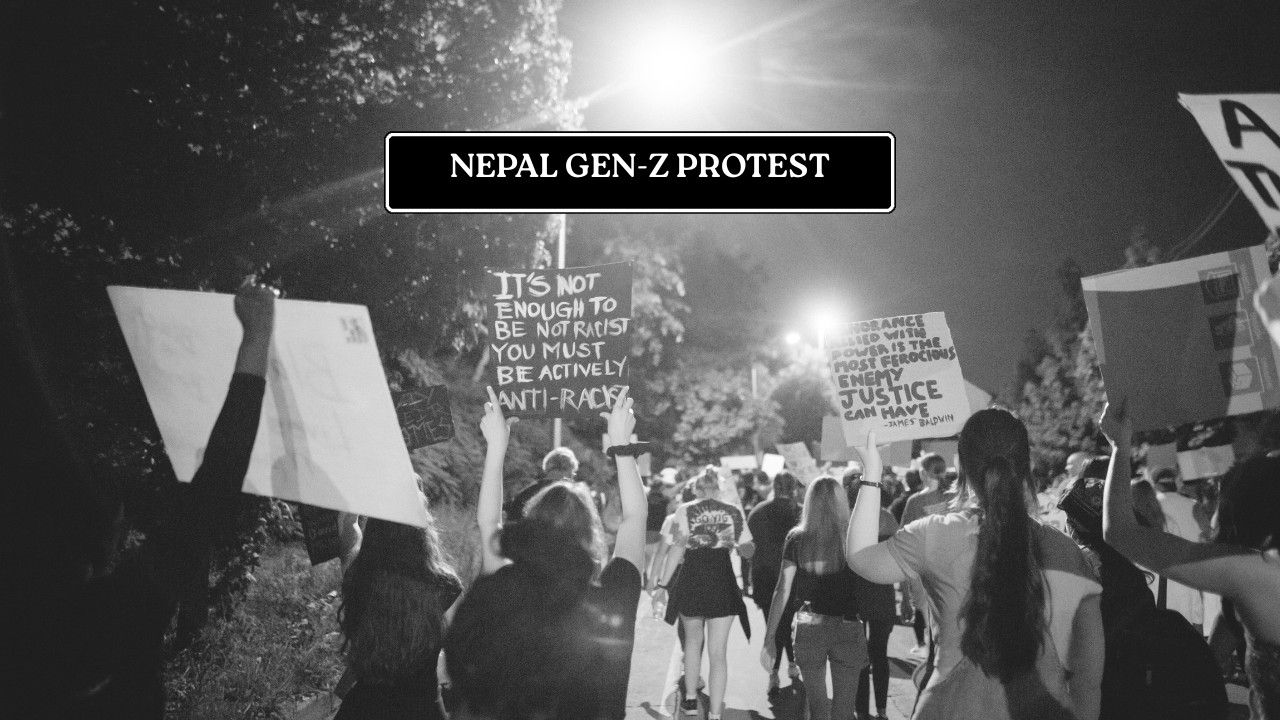Nepal’s Gen Z Uprising: A Digital Spark Ignites a National Revolution
In Nepal, a movement driven by young people, known as the "Gen Z protests," has profoundly impacted the nation, leading to the resignation of Prime Minister KP Sharma Oli and throwing the country into political turmoil. The protest was Initially sparked due to social media ban, it movement quickly evolved into a widespread rebellion against corruption, economic stagnation, and political elitism.
The Catalyst: A Social Media Ban
The immediate cause of the protest was the government's decision to block access to several social media platforms. On September 4, 2025, the Nepalese government ordered the shutdown of 26 social media sites, including Facebook, X, and YouTube, due to their non-compliance with new regulations from the Ministry of Communication and Information Technology.
For a generation that depends on these platforms for communication, news, and business, the ban was the tipping point. It was not just an inconvenience; it was seen as an attempt to stifle dissent and restrict freedom of expression. As one student protester explained to the media, "The social media ban triggered us, but it's not the sole reason we're here. We're protesting against the entrenched corruption in Nepal." In August 2025, a series of social media posts exposing nepotism and highlighting the undue advantages enjoyed by the children and relatives of powerful political figures ignited a wave of protests. These posts and the subsequent protests on social media were the main reasons behind the ban.
The Fuel: Years of Frustration and Inequality
The anger that erupted on the streets of Kathmandu was not a new phenomenon; it stemmed from years of frustration among Nepal's youth. Nepal's low ranking on the corruption perceptions index, coupled with a series of high profile scams, has fueled public outrage and protests. The protests were a direct response to a political class, widely perceived as self serving and disconnected from the struggles of the ordinary people.
Before the protests, the average Nepali made US$1,400 per year, and the families of the ruling elite flaunted their wealth on social media. This "Nepo Kid" trend caused significant public outrage, especially from Gen Z users, as the median age of Nepal is 25, and Gen Z is the age group most likely to use social media. As a result, Nepal has among the highest social media penetration in South Asia, with almost two accounts per two people due to its largely rural, hilly, and mountainous terrain and high migration to other countries.
With high youth unemployment and a broken unemployment, many Young citizens of Nepal are compelled to seek employment abroad. Unlike past political movements, this protest is largely leaderless and organised through a digital platform. Many participants, including students, are not affiliated with traditional political parties. They are driven by a demand for accountability and a belief that their generation deserves a clean and transparent governance.
Current Scenerio
The protests, which began with peaceful chants and marches, turned violent after security forces responded with deadly force. The government's harsh actions led to the deaths of many young protesters and left hundreds injured. This increase in violence worsened the situation, as angry crowds clashed with police and attacked government buildings and the homes of politicians. The tragic death of former Prime Minister Jhalanath Khanal's wife and assaults on other senior political figures underscore the deep-seated anger and the breakdown of law and order. The Prime Minister K.P. Sharma Oli resigned and fled to an army barracks in Shivapuri. There were conflicting reports President Ram Chandra Poudel resigned as well, however the Nepalese Army denied reports of Poudel's resignation.
On September 9, a joint statement from the World Organization Against Torture and the International Federation for Human Rights denounced the suppression of nonviolent demonstrations. In order to maintain its status as a state party to the International Covenant on Civil and Political Rights (ICCPR) of the Office of the United Nations High Commissioner for Human Rights (OHCHR), it demanded that the government "immediately halt all forms of violation and brutality by authorities against protesters," make sure that the ban rollback was permanent through legal means, and uphold its fundamental rights of its people—both online and offline.

